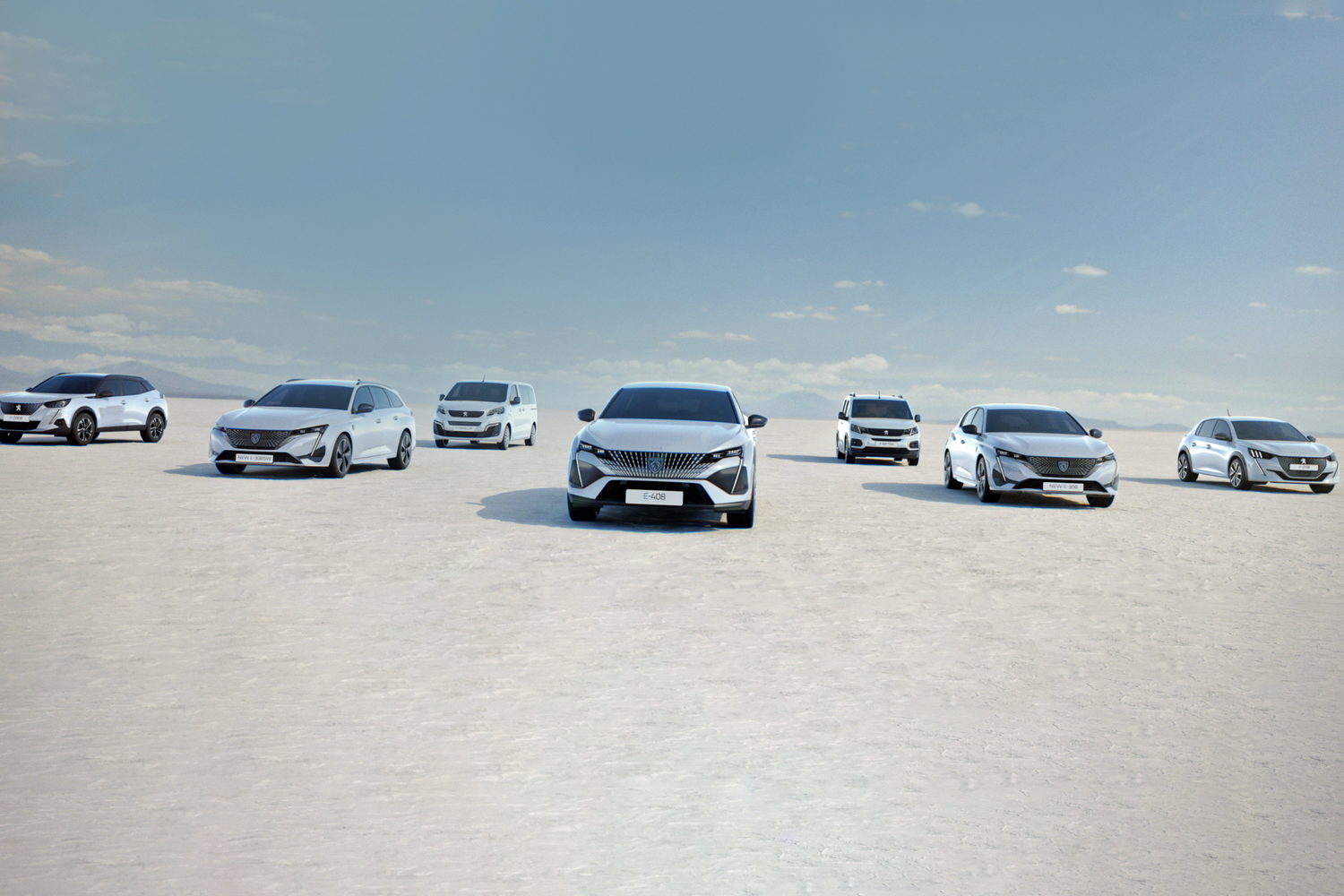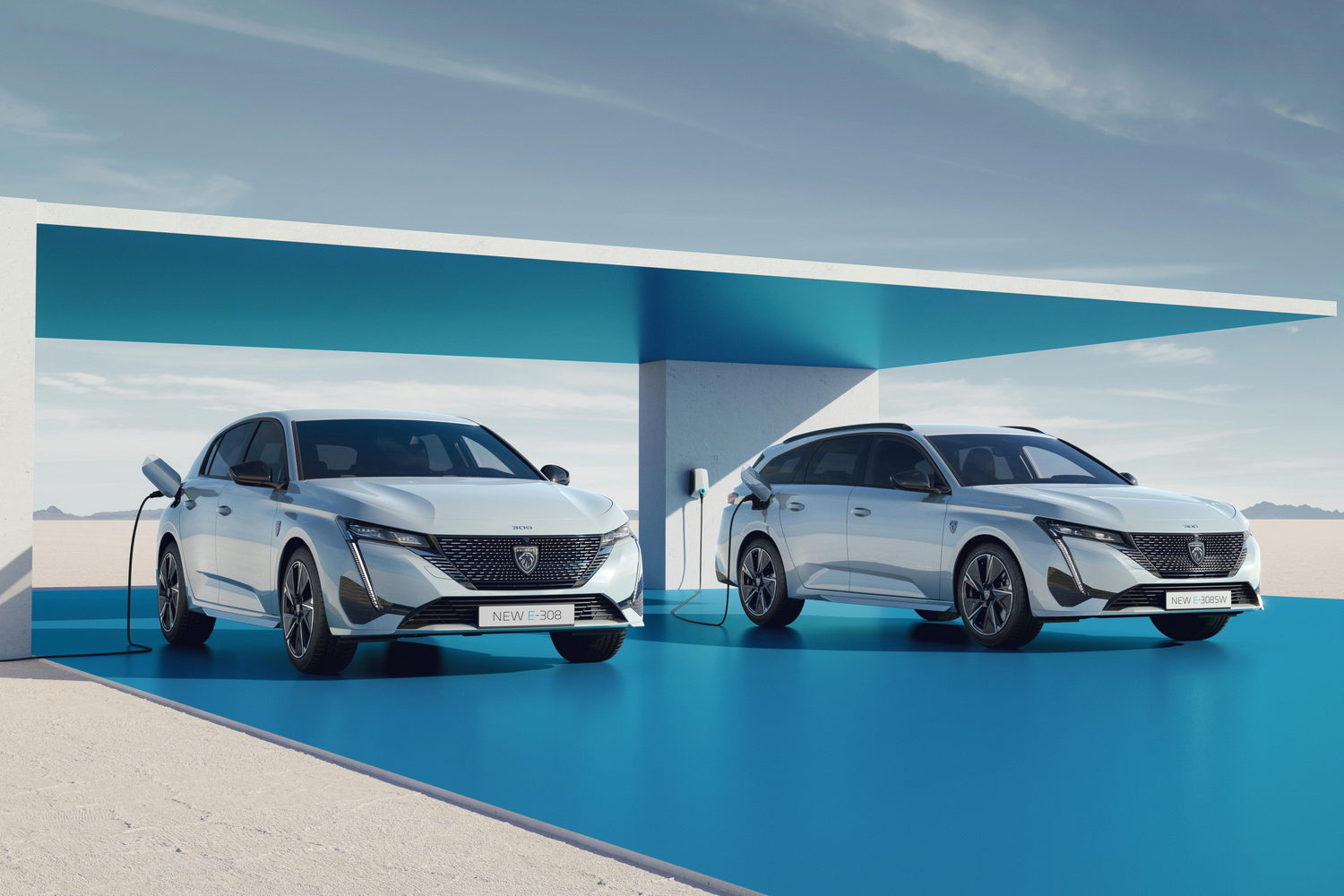Peugeot has laid out its new plans, dubbed e-Lion (Peugeot's badge is a lion), which will see all of its range powered 100 per cent by electricity by 2030.
All models get an EV option by 2025
To get from here to there, there will be some discrete steps along the way. By the end of this year, every Peugeot product will be offered with either a fully-electric or a plug-in hybrid option. By 2025, every model will have the option of a fully-electric version. Then by 2030, it's all electric, all the time.
This year, Peugeot will launch two key new electric models - the battery powered versions of the 308 hatchback and estate. Then we'll see an electric version of the new 408 crossover, and then will come the all-new electric E-3008 and E-5008. That E-3008 will be a critical model, as it will be the first Peugeot to ride on the Stellantis Group's new 'STLA' electric car platform, which means it will be able to offer up to 700km range, as well as all-wheel-drive versions.
Along the way, there will also be upgraded versions of the existing E-208 and E-2008 with bigger batteries and longer ranges, and Peugeot is developing a new 48-volt mild-hybrid setup for its combustion engines. This will be available for the existing 208, 308, 2008, 3008, 5008 and 408 models and will come with a new electrified six-speed dual-clutch gearbox that has its own 21kW electric motor. Peugeot says that the system will offer an increase in torque, along with a fuel and emissions saving of up to 15 per cent. It allows a car fitted with it to run on electric power for up to 50 per cent of urban journeys according to its maker.
New steer-by-wire setup
As part of its electric revolution, Peugeot is promising styling changes (with the recent Inception concept being a big nod in the direction of future Peugeot design) and a new design of its high-set instruments, tiny steering wheel layout of the i-Cockpit, based around a new steer-by-wire steering system.
Cars riding on the new STLA electric platforms will get over-the-air software updates, greater digital connectivity and the early beginnings of autonomous driving tech.
The plan also calls for a dramatic extension of the service life of a car, from an average of 15 years for a current combustion-engined model to as much as 25 years for a new EV. Key to that will be the ability to rapidly swap in and out wear and tear items, such as upholstery and trim, as well as regular software updates. Combined with lower vehicle weights and recycled materials (including recycled alloy wheels) Peugeot wants to cut what it calls its 'Global Warming Potential' by three quarters over the next two generations of cars.
Cheaper EV packages, subscriptions
With that will come new buying options, including fully inclusive subscription setups with online purchasing and EV charging included in your monthly payments. To help customers right now, especially those feeling the crunch of the economic crises, Peugeot is offering a pay-as-you-go system, which in France allows buyers to drive an E-208 for just €150 per month, with 500km inclusive and add-ons such as 7c per km long journeys. Peugeot Ireland has not yet announced if it will be partaking in this scheme.
If it all works, then by 2038 Peugeot aims to be at the point of carbon net-zero. Linda Jackson, Peugeot's CEO, said: "Carbon net zero is not three words, it's a mindset, an approach, one that we all need to embrace as organisations AND as individuals. Equally the E-Lion Project is not a strategy and a ppt deck. This is a project that we are committed to delivering on because it is critically important for us and future generations. The E -Lion project will define Peugeot's strategy as an EV brand and ensure we stay connected to the pulse of society to deliver mobility that lives up to our brand values."





